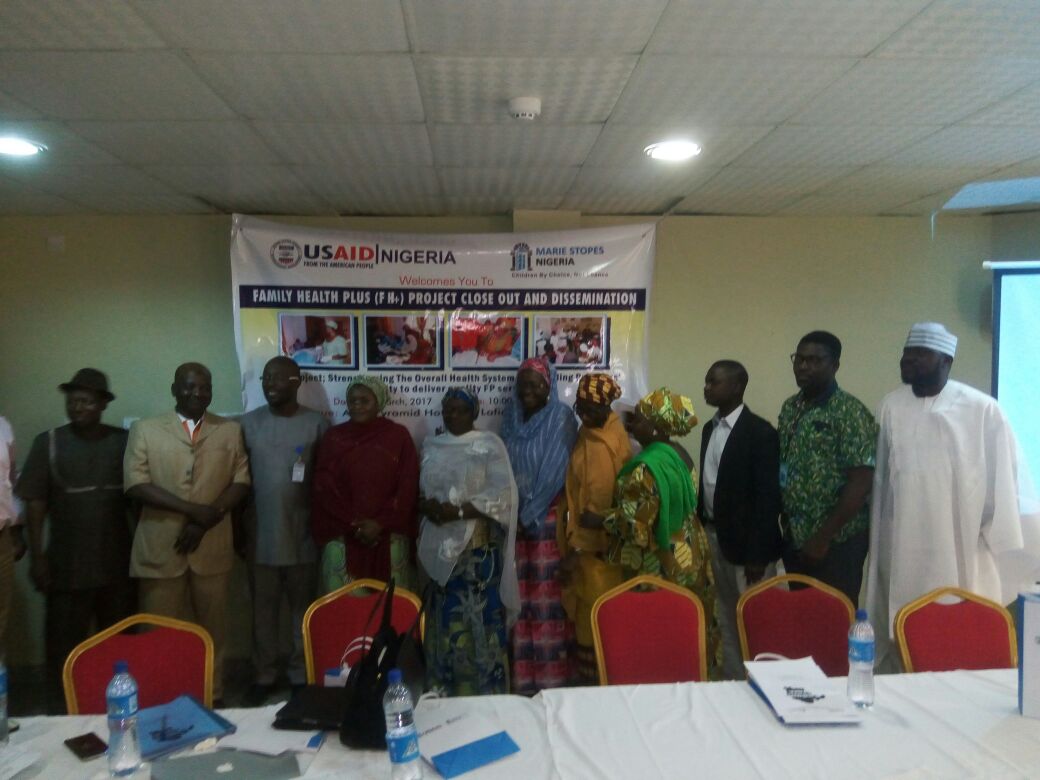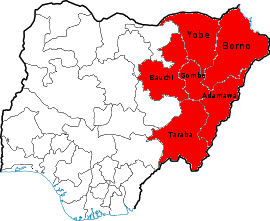By Longtong Ibrahim

About 16% of women in Kaduna state, northwest Nigeria want to space their births, but cannot do so due to absence of commodities and service providers in their localities. This is happening despite ongoing interventions by various partner organizations in the state.
Other factors that continue to hamper uptake of family planning services in the state include unequal distribution of qualified family planning service providers, inadequate supply of consumables, attrition of service providers, and poverty.
At the closure and Dissemination of Family Health Plus (FH+) Project in Kaduna, participants have called on Kaduna state government and other partners to take proactive measure that will ensure the provision of commodities, consumables and service providers, so that many more women would have the opportunity to take up the services.
The FH+ Project is a family planning support programme that trained service providers and supplied some of them with smart phones to tract and report data from their facilities.
The three year project was undertaken by a Consortium Group of three, comprising Marie Topes International Organization Nigeria (MSION); Marie Stopes International, Palladium Group. It was funded by United States Agency for International Development (USAID).
Speaking at the occasion, Marie Stopes Regional Director, North-West, Leonard-Angelo Viashima, said, to encourage uptake of FP services, his organization in conjunction with the Kaduna state Family planning coordinator, mapped out 120 facilities, out of which 85 were selected; conducted training of five master trainers who trained services providers, and in turn served 182, 286 women.
He added that Marrie’s Stopes had trained over100 FP service providers and healthcare providers in the state.
While calling on the Kaduna state government to improve the security level in the state, he noted that, fear over security concerns had affected service delivery in such places, adding that advocacy activities to such areas also became difficult.
He noted that, in its three year programme, “nearly 92,000 were served in 2014/2015, while in the last part of 2015/2016, in areas where insecurity had increased, number has dropped down and our concentration was more in the North where there seems to be adequate security.”
He added that, MSION further supported the Kaduna SMoH with some items in order to boost services in its facilities among which include; IUCD insertion and removal kit, Job aids, implants insertion and removal kits, IEC materials were donated.
In his remarks, the Kaduna state Commissioner of Health, Dr. Paul Manya Dogo, who was represented by Dr. Ado Zakari lauded the activities of the organization, saying Kaduna state is opportune to have partners in FP.
He also expressed delight over FP acceptance in the state, adding that, the religious and social-cultural challenge is close to an end, as many have better understanding of child birth spacing.


